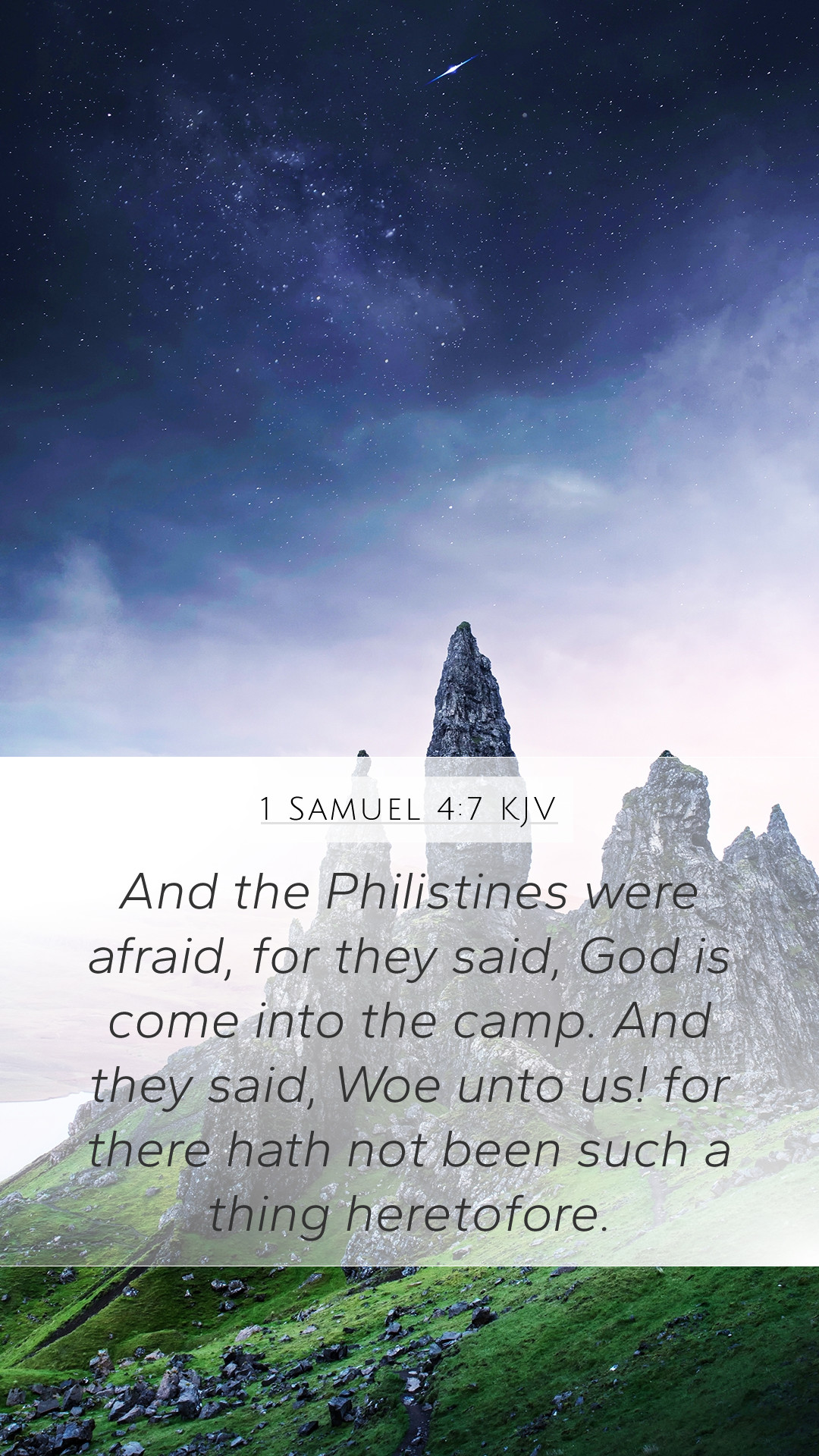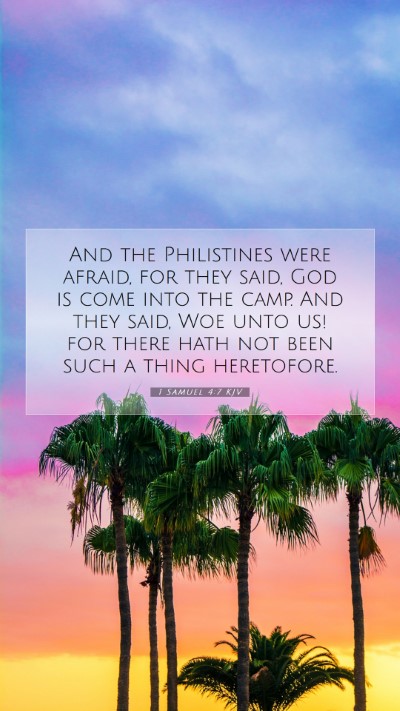Bible Verse: 1 Samuel 4:7
"And the Philistines were afraid, for they said, God is come into the camp. And they said, Woe unto us! for there hath not been such a thing heretofore."
Understanding 1 Samuel 4:7
This verse occurs during a critical moment in Israel's history when the Israelites were facing the Philistine army. It highlights the fear of the Philistines upon realizing that God, attributed to the Israelites, has entered their camp—signifying that their defeat was imminent unless they take urgent action. In this context, we can derive several key meanings from public domain commentaries.
Bible Verse Meanings
- The Presence of God: Matthew Henry elaborates on the notion that the Philistines recognized the presence of God among the Israelites. The fear stemmed from a profound understanding of God's power that had been demonstrated in their past battles.
- Historical Awareness: Albert Barnes underscores that the Philistines were aware of how God had previously aided Israel, particularly in the exodus from Egypt, raising their alarm at the realization that the God of Israel was among them.
- Their Spiritual State: Adam Clarke indicates that the Philistines’ fear reflects their spiritual condition. The acknowledgment of God’s involvement displays an understanding of divine power, contrasting the Israelites' lack of faith and anticipation for divine support.
Bible Verse Interpretations
This verse is often interpreted as a turning point for the Israelites, as it points to the fear that their enemies had of God, which should remind believers today of the strength that God can provide when they face challenges. The Philistines' fear illustrates the idea that the presence of God invokes reverence and acknowledgment of His supremacy.
Bible Verse Commentary
- Divine Intervention: Commentary from Matthew Henry implies that the recognition of God's presence acts as a precursor to divine intervention. The Philistines' fear indicates a belief in the powerful God of Israel, which, in turn, highlights that God was indeed working at that moment.
- Recognizing God’s Authority: Albert Barnes notes that the expression "Woe unto us!" signifies a profound acknowledgment of their impending doom due to disregarding the power of the God they were facing.
- The Irony of Fear: Adam Clarke reflects that it is ironic that the Philistines, idolaters who did not have a covenant relationship with God, were more fearful of His presence than the Israelites were confident in it. This serves to illustrate the psychological and spiritual implications of divine encounters.
Scripture Analysis
The analysis of this verse reveals deep implications about faith, fear, and divine authority. When Christians explore such verses, they are invited into a larger narrative of God’s presence among His people and the response of those who either believe or oppose that presence.
Biblical Exegesis
In exegesis, we delve into the text's historical, cultural, and theological contexts. This verse reveals the ancient Near Eastern warfare context where nations recognized the significance of deities in battle. The Philistines' concern underscores the reality of spiritual warfare—the belief that a nation's spiritual state influences outcomes in physical battles.
Application of 1 Samuel 4:7 to Daily Life
Understanding that God is with His people is fundamental to developing faith in modern believers. People today can draw from this biblical understanding and remember that acknowledging God in their struggles invites His power into the circumstances they face.
Additional Cross References
- Exodus 14:13-14: The Israelites were reminded of God's presence and ability to save them at the Red Sea.
- Joshua 10:14: The Lord fought for Israel, underscoring that divine intervention leads to victory.
- Psalm 46:1: "God is our refuge and strength, a very present help in trouble," reinforcing the theme of divine assistance in crises.
- Isaiah 41:10: "Fear not, for I am with you," a reminder to trust in God's presence amidst fear.


